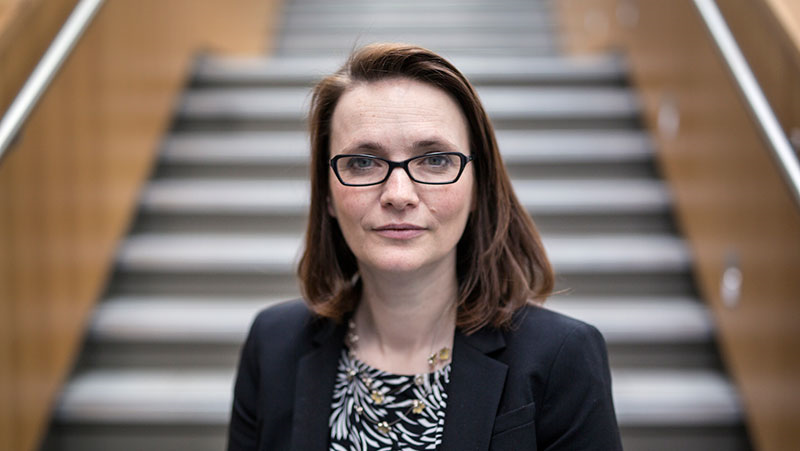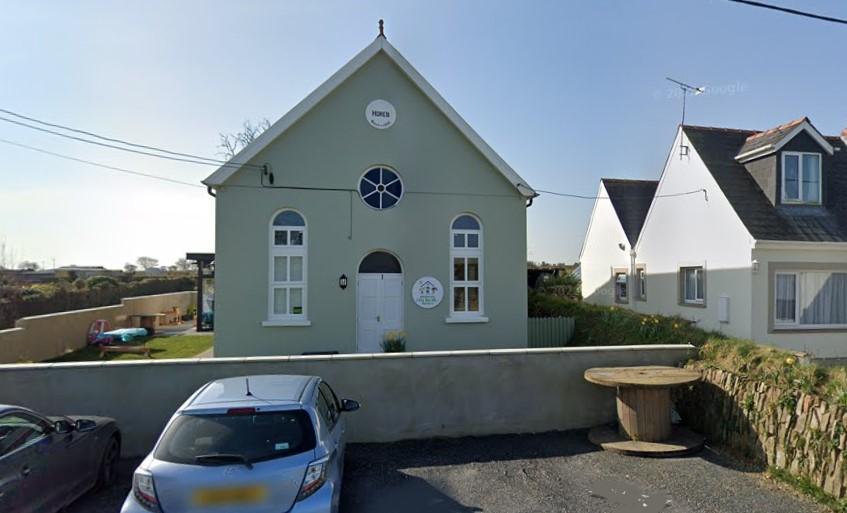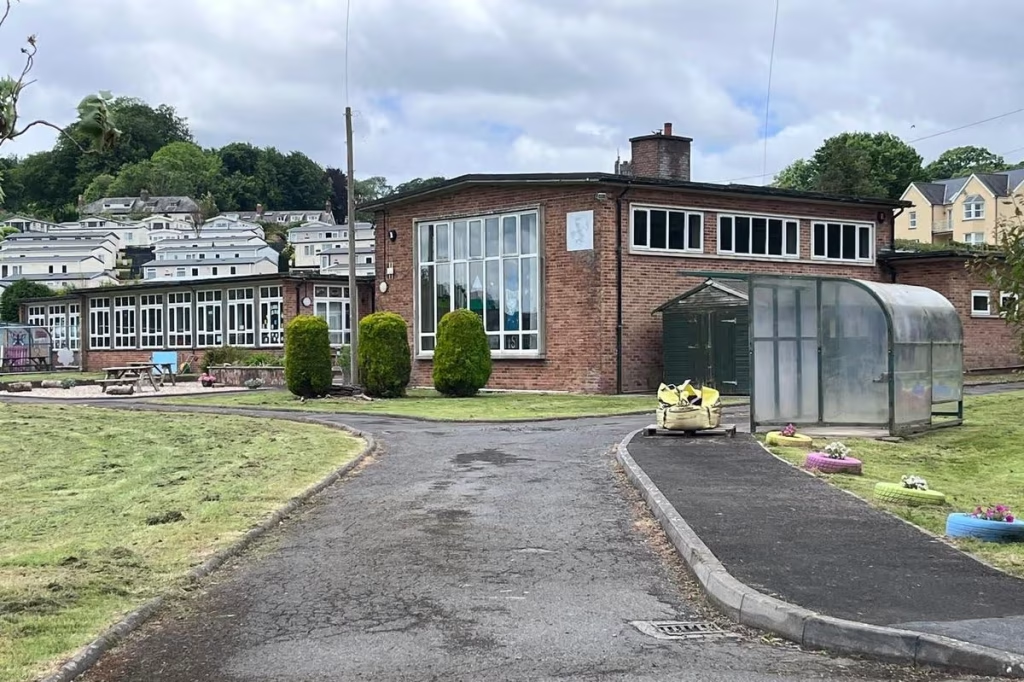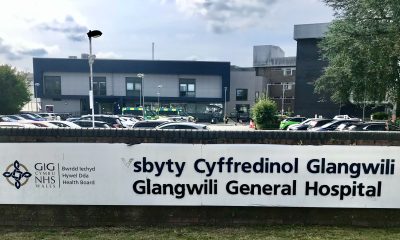Education
Action to stop ‘grade banking’

EDUCATION SECRETARY Kirsty Williams announced new rules to reduce the number of pupils being entered too early for exams on Monday (Oct 16).
Ms Williams had previously expressed her concern regarding schools abusing the early entry system by entering whole pupil cohorts into Maths and English papers a year early.
An independent review by Qualifications Wales has found:
- The continued widespread use of early and multiple entry at GCSE poses risks to students and to the system, which are not easily justified
- The practice encourages a “teaching the test” approach at the cost of wider subject knowledge
- More than £3.3m was spent by schools on early entry in the last academic year
Qualifications Wales concluded that they are ‘concerned about the extensive and growing use of early and multiple entry’.
In response the Education Secretary has announced that, from summer 2019, only a pupil’s first entry to a GCSE examination will count in their school’s performance measures. The current policy allows schools to count the best grade from multiple sittings.
Kirsty Williams said: “The changes I am announcing today, based on Qualification Wales’ findings, will ensure that the interests of pupils are always put first.
“I am concerned that pupils who had the potential to get an A*, A or a B at the end of a two year course end up having to settle for a C. Too often this is because they take their exam early and are not re-entered again. I want every child to reach their full potential in school. Early entry must only be for the minority of pupils who will benefit.
“GCSEs are designed to be sat after two years of teaching, not one. These changes will ensure our young people access a broad and balanced curriculum, and focus in on what’s best for our children and young people.”
Responding to research published by Qualifications Wales into the growing practice of schools entering pupils for their GCSE exams early, Llyr Gruffydd AM, Plaid Cymru’s shadow spokesperson for Education and Lifelong Learning, said: “I welcome the report as it provides a deeper understanding of the issues facing schools and students sitting GCSEs a year early. The cabinet secretary has already indicated her concerns and it’s important that she now acts on the recommendations being made.
“Retaining the option of early entry for some students is important, but it’s clear that too many are being entered for some subjects and this broad-brush approach can put additional pressures on students and cost valuable learning time in schools.
“At a time of growing financial pressure, it’s also worrying to note that early entry is placing an additional cost of at least £3.3m on our schools. The report also highlights that some schools are looking at sharing these costs with parents which is a further concern.
“Schools are under pressure to enter their students early and the Government must change the performance measures that have created this situation. Pupils should only be put forward for examination when they are ready and not to balance other competing pressures.”
Welcoming the Welsh Government move, Darren Millar AM, Welsh Conservative Shadow Education Secretary, said: “Student wellbeing should be at the heart of all decisions made by schools, so the Cabinet Secretary’s announcement is to be welcomed.
“This year’s GCSE results were the worst in a decade for Wales and early entry might well have fuelled this problem.
“Taking exams early isn’t for everyone. Most pupils will need to be given the time to develop their knowledge instead of being pressured to sit tests they simply aren’t ready for.”
NEU Cymru has welcomed the Qualifications Wales report into early entry exams which is calling for a change to the accountability model for schools. The National Education Union say that the way schools are held accountable often leads to unintended consequences within the education system. The Union has long argued for a change to the model to ensure that pupil progress is not undermined by the pressure put on schools to hit certain targets. The union will now look to work with the Welsh Government to find constructive changes that will address these concerns and others relating to how schools are judged.
Keith Bowen, Wales Director of the National Education Union Cymru, said: “We will naturally have to review the full findings of the report over time however the primary recommendations, in principle, appear sensible. It is important that while we seek to limit unnecessary early entry we do not underestimate the value of it for some pupils. The individual circumstances of each pupil need to be assessed and the professional judgement of teachers and head teachers should be respected in making the right choices for learners.
“What is encouraging in the report is the recognition that accountability measures are having unintended consequences on how schools operate. This isn’t limited to early entry but clearly it has had an impact in regards to this particular issue. We hope the Welsh Government do acknowledge the concerns of the report and works with the profession to develop a more innovative approach to assessing school performance. This would allow teachers to continue to offer early entry where appropriate, but to take away the accountability pressure that has put high stakes assessment above pupil progress.”
Community
Letterston nursery equipment could be stored in cemetery

A CALL for a storage container for a “well-established and valued” Pembrokeshire children’s nursery in a nearby cemetery has been submitted to county planners.
In an application to Pembrokeshire County Council, Diane Evans of Meithrinfa Do Re Mi Nursery seeks permission for the installation of a storage container, partially in retrospect, at Horeb Cemetery, Station Road, Letterston.
A supporting statement says: “The container is required to provide essential ancillary storage to support the lawful and established nursery use within the [nearby] chapel building.
“The site forms part of an active cemetery, owned and managed by a group of trustees. The applicant is one of the trustees and has obtained formal permission from the trustees for the container to be sited on this land. The area selected previously comprised a large, longstanding mound of garden waste which has now been removed. The land has been levelled and prepared with a hard-standing base.
“The container will be used solely for storage of nursery equipment and materials, including outdoor learning resources, maintenance equipment, and items required to manage both the nursery grounds and the cemetery land. No additional operational activity will take place within or around the container.”
It adds: “The day nursery provides childcare for approximately 83 children from the local community and employs 21 staff, all of whom live locally. The nursery is a well-established and valued community facility, supporting local families and contributing positively to the local economy. Adequate storage is essential to ensure the safe, efficient and compliant operation of the nursery. The chapel building itself has limited internal storage, making external ancillary storage necessary.”
It says the nursery “operates with a strong community focus and promotes sustainability and environmental awareness,” with plans to soften its appearance through the planting of trees, shrubs and flowers.
It added: “Children will take part in a ‘sow, grow and give’ project, growing cut flowers from seed. These flowers will be made available to the community, particularly visitors to the cemetery, who will be invited to cut flowers to place on the graves of loved ones. This initiative enhances biodiversity, strengthens community links, and adds social value to the cemetery space.”
The application will be considered by county planners at a later date.
Education
Parents urge council not to close Ysgol Llansteffan

Campaigners call for delay amid Welsh language investigation and rising pupil numbers
PARENTS and campaigners have urged Carmarthenshire County Council’s Cabinet not to recommend the closure of Ysgol Llansteffan when members meet on Monday (Feb 23).
The appeal comes ahead of a proposed decision that could see the village’s Welsh-medium primary school close in August this year.
The Ysgol Llansteffan Parents and Teachers Association (PTA), supported by Cymdeithas yr Iaith, has written to councillors calling for the process to be halted, arguing that key evidence remains incomplete and that the case for closure is flawed.

Among their concerns is an ongoing investigation by the Welsh Language Commissioner into the language impact assessment used to support the closure proposal. Campaigners say it would be inappropriate for the council to make a final decision before the investigation is concluded.
They also claim no council decision-makers have visited the school to verify the information used in the proposal, despite significant changes in circumstances, including a rise in pupil numbers to 17 as of January 2026.
The PTA argues that this increase undermines earlier projections and raises questions about the reliability of longer-term forecasts used to justify closure.
Financial concerns have also been raised. While council documents suggest annual savings of around £112,000, campaigners say transport costs of approximately £50,000 per year and inflationary pressures have not been clearly accounted for, potentially overstating the net benefit.
Parents say closure would remove parental choice and risk damaging Welsh-medium education in the area by forcing some children to travel further or potentially move into English-medium provision.
Cymdeithas yr Iaith has backed the PTA’s call, warning that the council’s objection report failed to properly address concerns that insufficient school capacity elsewhere could push pupils out of Welsh-medium education altogether.
Campaigners have also criticised what they describe as factual inconsistencies in the council’s reports, including outdated enrolment figures and conflicting capacity estimates for neighbouring schools.
The PTA has asked the council to defer any decision until updated data is available, the Commissioner’s findings are published, and alternative options for sustaining the school have been fully explored.
In their letter, parents stressed they remain willing to work constructively with the council to develop a long-term solution that would allow the school to remain open as a sustainable Welsh-medium provision for the community.
Carmarthenshire County Council has previously said the proposal is intended to address falling pupil numbers, high surplus places and financial pressures at the school. Cabinet members were told earlier in the process that neighbouring Ysgol Llangain would have sufficient capacity to accommodate pupils if the closure proceeds, and that transferring learners would provide access to improved facilities and help ensure long-term sustainability of education provision in the area.
The final decision is expected to be taken by full council in March following the Cabinet’s recommendation.
Crime
Teacher stabbed by pupil criticises school weapon scanner plans

Victim says teachers should not be turned into “security guards” after Ammanford attack
A TEACHER who was stabbed multiple times by a pupil at a Carmarthenshire school has criticised proposals to introduce weapon scanners in classrooms, warning they risk shifting responsibility onto already overstretched staff.
Liz Hopkin was attacked by a teenage student at Ysgol Dyffryn Aman, Ammanford, in April 2024, in an incident that shocked communities across Wales.
Speaking to BBC Radio Wales, Ms Hopkin said she does not believe scanners are “the answer” to preventing violence in schools and warned they could undermine relationships between teachers and pupils.
She said the focus should instead be on preventing young people from bringing weapons to school in the first place.
“This isn’t about preventing people bringing knives into school in the first place. This is just about detection,” she said.
“If by the time you’ve got the knife in school, you’ve missed so many opportunities prior to that to stopping that knife coming in in the first place.”
Ms Hopkin also warned that introducing scanning responsibilities could place teachers in unsafe and inappropriate situations.
“To stop putting the responsibility onto schools — we already have enough responsibility with less and less and less resources,” she said.
“You’re adding the role of security guard to teachers who are trying to build relationships with young people.”
Despite suffering serious injuries in the attack, she said she still did not believe scanners were the right approach.
“In my own head, as somebody who’s been right at that point where I’ve been stabbed — I was stabbed five times and feared that I would die — I still don’t think it’s a good idea,” she said.
The Welsh Government told the BBC that its work around weapons in schools forms part of a wider strategy to improve behaviour, with a strong emphasis on prevention rather than enforcement.
Officials said any decision to use scanners would be made by individual local authorities, and there is no expectation that teachers or school staff should carry out security duties.
Some councils have already trialled handheld scanners. Cardiff Council has supplied them to schools, but they are only used when there is a clear concern a pupil may be carrying a weapon.
The stabbing at Ysgol Dyffryn Aman led to renewed debate about school safety across Wales, including behaviour management, pupil support services, and funding pressures facing education.
Ms Hopkin added: “I would never ever suggest that anybody put themselves at risk to check. That’s not our role.”
(Image: BBC)
-

 Health4 days ago
Health4 days agoWithybush loses emergency surgery in shock health board decision
-

 Health4 days ago
Health4 days agoHealth board confirms major hospital changes across west Wales
-

 Health3 days ago
Health3 days agoConcerns grow over Bronglais stroke plans as politicians demand clarity
-

 Health4 days ago
Health4 days agoHealth board: Changes will bring “resilience and sustainability” to West Wales services
-

 Local Government2 days ago
Local Government2 days agoCandidate who withdrew from Hakin race will still appear on ballot paper
-

 Business6 days ago
Business6 days agoMS’s host business advice surgery following demand from Business Rates Online Forum
-

 Crime7 days ago
Crime7 days agoMan charged with GBH with intent following incident involving ‘Pembrokeshire Patriot’
-

 Crime6 days ago
Crime6 days agoTeen given community order after assaulting police officer at hospital



























